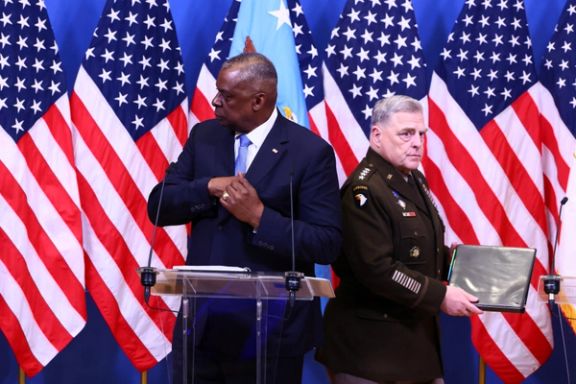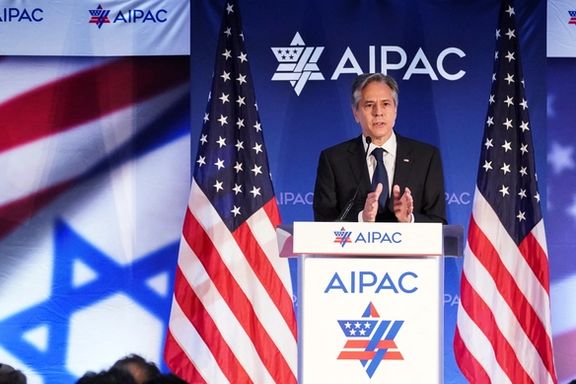US Reportedly Offers Assurances To Israel Amid Talks With Iran

The United States has assured Israel it will keep its military edge and freedom to act against Iran, as it aims for an interim nuclear deal, a report said Friday.

The United States has assured Israel it will keep its military edge and freedom to act against Iran, as it aims for an interim nuclear deal, a report said Friday.
Israeli Channel 12 news reported that US Secretary of Defense Lloyd Austin and Israeli Defense Minister Yoav Gallant met Thursday on the sidelines of NATO meeting in Brussels and reached understandings in the light of an emerging nuclear deal between Tehran and Washington.
In recent weeks, multiple news outlets have reported on direct and indirect US Iranian talks on reducing tensions, a possible interim unwritten agreement to slow down Tehran’s nuclear program and release of Americans held in Iran.
The Biden administration has repeatedly denied any deals with Iran, acknowledging that contacts were made to make clear what US demands were. The latest denial came from Secretary of State Antony Blinken on Friday during a press conference.
“With regard to Iran, some of the reports that we’ve seen about an agreement on nuclear matters or, for that matter, on detainees are simply not accurate and not true,” Blinken said.
Channel 12 news also quoted senior security officials as saying that cooperation with the United States has increased on the issue of Iran, involving the Israeli Defense forces in joint efforts.

Washington has assured Jerusalem that it will maintain its military edge over Iran, and Austin also made clear to Gallant that in addition to close cooperation over Iran, Israel will maintain a free hand to act against adversaries.
Israel has made clear that if it concludes Iran is close to obtaining nuclear weapons, it will not limit itself by any agreements the United States and others might have reached with Tehran and will take military action to stop what it sees as an existential threat.
Israeli officials and media indicate that some sort of a deal between Washington and Tehran is moving forward and that Israel will accept the general parameters of a possible agreement and will not try to foil it.
Israel’s ambassador in the US Michael Herzog was quoted as saying, “Diplomacy isn’t necessarily a bad thing,” during an event hosted by the Democratic Majority For Israel, according to Haaretz.
“As far as we’re concerned, diplomacy in and of itself, and such understandings, are not necessarily bad to the extent that they can help deescalate a situation,” Herzog said.
Iran has acknowledged diplomatic efforts behind the scenes but has been cautious in heralding any imminent deals.
Nour News, affiliated with the national security council on Friday said the White House is showing "positive signals of changing its approach toward Iran in the past few months".
Regarding reports about a possible nuclear deal, the website did not express optimism, but its claim of positive signals was an indication of some satisfaction at the security council.
‘Reformist’ media in Tehran, critical of the ruling hardliners, continued to argue for flexibility and a deal that would lift crippling US sanctions imposed since 2018 when former President Donald Trump pulled of the 2015 JCPOA accord.
Aftab News close to former President Hassan Rouhani in an article on Saturday recounted the “trillions of dollars” in damages to Iran’s economy resulting from its nuclear dispute with the West over a period of two decades.